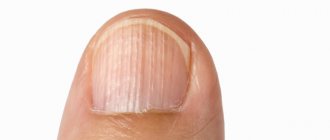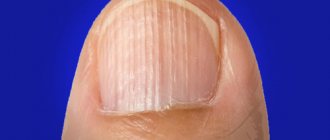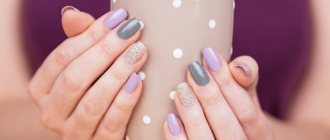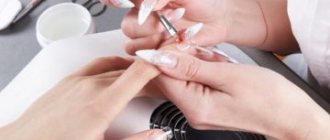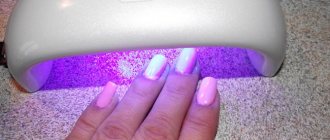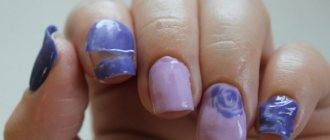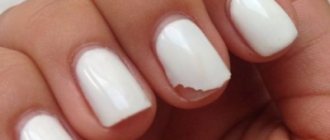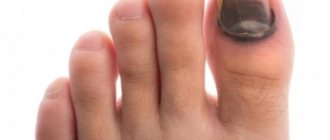: Reading time:
Why does a child bite his nails, pull out his hair, scratch himself, or perform other obsessive actions - says child psychologist Victoria Melikhova.
He bites his nails until they bleed, pulls out the hair on his head, scratches his skin, and performs some strange rituals without which he cannot go to bed. What is behind obsessive actions in children from a psychological point of view?
The easiest way to understand the meaning of these actions is through the example of a ritual. A child needs to wash his hands with soap five times before going to play or having lunch. What will happen if he doesn't do this? If a child does not wash their hands thoroughly enough, germs will remain and get into their mouth, causing a stomach ache... Do you know the horror story? Washing hands in an exaggerated manner protects the child from a sore stomach and from anxiety that the stomach may get sick.
The main function of neurotic obsessive actions comes out - protective. But protection from what? It turns out that from anxiety. If I perform a certain action, no undesirable consequences will occur.
The main function of neurotic obsessive actions comes out - protective. But protection from what? It turns out that from anxiety.
The student tries to do everything five times to get an A. This ritual reduces the anxiety of getting a bad grade.
Not everything can be controlled, even by adults. Then the desire for control shifts to obsessive actions that have nothing to do with desire. I can wash my hands five times and then I'll get an A. I can kiss my mother goodnight three times without fail, and then she will live happily ever after. I can create the illusion of control over something I essentially cannot control. And then my anxiety decreases. The fear of failure and the fear of death are reduced.
The child bites his fingernails, pulls out his hair - thanks to them, the child copes with anxiety, with the affects that overwhelm him. And it’s good that the psyche copes at least this way.
The task of parents and psychologists is to understand what lies behind the obsessive action, and how this feeling, this emotion, this desire can be expressed in a more rational way.
Let's look at the main reasons why a child bites his nails.
Negative consequences of a bad habit
Every bad habit has consequences.
Experts include the following consequences of untreated onychophagia:
- violation of the integrity of the nail plate and cuticle;
- slower nail growth;
- cuticle rupture;
- wound infection;
- infection of the oral mucosa, dental problems;
- gastrointestinal problems, viral damage;
- helminth damage;
- ridicule from peers.
Let's try to identify the reason
So, a 10-year-old child bites his nails. Why is he doing this? What is the reason? As you know, nothing happens without a reason. Let's try to find out.
- The first, and moreover, obvious reason is that the child was not weaned from this harmful activity in early childhood. If they had weaned us off, then there wouldn’t be any conversation now.
- Condition of the skin around the fingers. In many children, especially boys, who are known to be much less neat than girls, the skin on the fingers around the nails often becomes rough, puffy and thereby causes discomfort. So the children bite it off with their teeth. Of course, this can be done with scissors, but scissors are always far away, but your own teeth are always nearby. Gradually, such hygiene turns into an obsessive habit, and the child already “automatically” performs such hygiene procedures.
- By chewing nails, a child tries to get physical pleasure in this way. There are different ways for a person to obtain pleasure, and this is one of them.
- The child's body lacks vitamins and minerals. Such a lack causes anxiety, overwork and nervousness, and in order to calm them down, the child bites his nails.
- The child has worms in his intestines, and tearing at his nails with his teeth is an involuntary reaction of the child to this ailment.
- For some reason, it is difficult for a child to adapt, establish contacts with peers, parents, etc. As a result, stress arises, and in order to relieve it, the child begins to bite his nails.
- An unhealthy climate in the family is also a common cause of childhood stress, which the child tries to relieve in this way.
- Dissatisfaction with oneself. At the age of 10 this is a common thing. Not knowing how to cope with himself, the child compensates for such ignorance with some bad habit. For example, biting your nails.
- The child is too nervous and impressionable. Not knowing how to cope with his character on his own, he tries to do it with the help of a bad habit. Moreover, he bites his nails both when he is upset and when his soul is light and joyful.
- It's just a bad habit, nothing more.
- It often happens that a child bites his nails simply out of boredom, when he has nothing to do.
- This is a peculiar reaction to high workloads at school and, as a result, to overwork.
- The child often “hangs out” at the computer or TV. This affects the child’s psyche, stress arises, and then everything is clear and without comment.
What should I do to solve the problem?
How to stop biting your fingernails using folk methods?
You can use known methods. For example:
- Dip the child's fingers in a tasteless liquid (wormwood infusion), sprinkle with pepper, and grease with mustard.
- It will be useful to treat your nails and cuticles with aloe juice , which will not only help heal damage, but also, due to its bitter taste, will discourage you from putting your fingers in your mouth.
Please note that all these products are quickly washed off and washed off your hands, so you need to renew them several times a day.
Attention! During the first days of treatment, it is better to be close to the child to calm him down if he bursts into tears due to an unexpected taste. In kindergarten he is unlikely to receive special attention, and at school teachers do not serve as nannies.
Advice from psychologists
- Come up with a fairy tale in which one of the characters had a similar bad habit, but the other did not. The further plot is at your discretion. You can often find options where they didn’t want to communicate with the sloppy hero, but the neat one had many friends.
- Teach your child to express his emotions in words. This will help him release his energy.
- Relieve stress by painting, singing, walking, or any other way that you both enjoy.
- In such cases, you should not allow your child to watch a lot of TV, play computer games, or hang out on social networks. These activities only increase nervous tension, which will aggravate the existing problem.
- Enroll your child in a sports section. An excellent option would be football, hockey, and dancing. Remember that it is worth monitoring your daily routine and load.
- Teach yourself to take care of yourself. For example, some manicure and pedicure chains provide . Teenagers, accordingly, can sign up for a classic manicure. For very young children, it is necessary to examine their hands every evening; when hangnails appear, it is necessary to remove the “irritants” with a nail file and nail scissors.
- If you notice another manifestation of onychophagia, distract the child with a conversation, a game, a fairy tale, or a walk.
- Be affectionate. Kiss, hug your child, listen - this will have a good effect on his nervous system and your relationship.
Special means
- To strengthen the nail plate and get rid of external manifestations of onychophagia, you can take vitamin and mineral complexes.
B vitamins and baths with natural vegetable oils (for example, cedar oil) have a good effect. - A similar effect to mustard (pepper, aloe) is exerted by special varnishes such as “Nekusayka”, “Don’t Gnaw”, designed specifically for children. They can be purchased at the pharmacy, they cost around 300 rubles. These products must be applied to the nail plate once every day or two.
When using such products, it is necessary to monitor your child's nail biting, as over time he may get used to the bitter taste of the varnish and will continue to put his fingers in his mouth.
If the main cause is neuroses, then you can take sedatives. Consultation with a neurologist and allergist is necessary , as there is a risk of developing allergies and addiction.
It is worth noting that drug treatment for onychophagia is impossible. The only thing that can be done with the help of pharmaceutical drugs is to get rid of the consequences as much as possible, reduce anxiety, but not solve the problem.
Traditional methods
How to stop a child from biting his nails using folk methods?
In combination with the proposed methods, you can use tips that have been used for many years:
- Lubricate your nails with something bitter: mustard or pepper. It is worth remembering the danger of contact with the mucous membranes of the eyes; the child can get a burn if he just rubs his eyes.
- Apply green paint to your nails. An unpleasant appearance will repel the baby, and a green mouth after nails will also cause disgust.
- Make your child an aromatic pillow with mint, lemon balm, chamomile, and lavender. At the same time, you need to be sure that he is not allergic to these plants.
Gloves
How to stop a child from biting his nails using gloves? If possible, put gloves on the baby's hands : while falling asleep, watching TV, on the street. In hot weather, you need to use thin gloves made of natural fabrics.
It will even be interesting for girls; create the image of a “lady”. Boys will be happy to wear gloves that will create an unusual look. The less access to your nails, the faster you can eliminate the bad habit. There are also gloves with touch sensitivity for ease of use of the phone.
Common mistakes made by parents
In this situation, parents often make mistakes, the most common of which are the following:
- They don’t fully assess the current situation, they don’t pay attention, believing that everything will work out on its own. This is the biggest mistake. Cases when a child stops biting his nails on his own are very rare.
- Intimidation and threats develop a sense of guilt in the child; he only withdraws into himself and stops trusting his parents.
- Prohibitions: if a child is prohibited, then on a subconscious level he will do what is prohibited.
What is this phenomenon, why does it happen?
It is noticed that it intensifies in the period from 7 to 12 years. Onychophagia is provoked by stress and an increased level of mental stress, including those associated with adaptation to new conditions (for example, school and a new class).
Important! Onychophagia develops as part of neurosis-like disorders, so it is not isolated as a separate diagnosis. Doctors from a variety of specialties are involved in diagnosis: from pediatricians to psychiatrists.
That is, you should not assume that this is just a bad habit; onychophagia is a disorder that requires treatment . It involves special nail care and psychotherapy sessions to eliminate the cause and consequences of the disorder.
Bracelet
This method is more suitable for older children who have already realized the existing problem and want to eliminate it.
The operating principle is as follows:
- A bracelet or elastic band is put on the wrist. They should not be too tight, otherwise the blood circulation process will be disrupted.
- It is necessary to teach a child or teenager to flick it on the hand when the fingers are in the mouth.
- This habit will cause associations of pain and gradually it will pass.
The advantage of the method is that the child learns to control his own actions, and the resulting success brings joy and increases self-esteem. But if a child is not able to cope with the habit in this way, he should not be scolded or reproached for it. It is necessary to propose a new way to solve the problem.
If the child is small, this method is also acceptable, but parents will need to pull back the elastic. This means that control should be maximum.
Creative activities, games with children, sports
Hand exercises play an important role. This could be modeling, games that develop hand motor skills, drawing or playing musical instruments.
If, in the process of being carried away by some activity, a child unconsciously puts his hand in his mouth, you need to gently, without focusing his attention, distract him, put some object or toy in his hand, ask for help, offer to chew on a dryer.
Activities and games with small objects (taking into account the child’s age) will help distract him from a bad habit. Teach a child to show emotions; children reveal themselves best in games, sports, and communication with peers.
There are many creative activities that will help your child get away from his bad habit.
To relieve tension, you need to teach your child to be distracted and relax. Games, sports, and regular physical exercises using special breathing techniques help relieve stress and anxiety. To do this, the child must take deep breaths and exhales for several minutes.
To interest the baby, you can give him a toy and present such an exercise in the form of a game. You can relieve tension with a simple exercise: clench and unclench your fists, squeeze or hug a soft toy.

